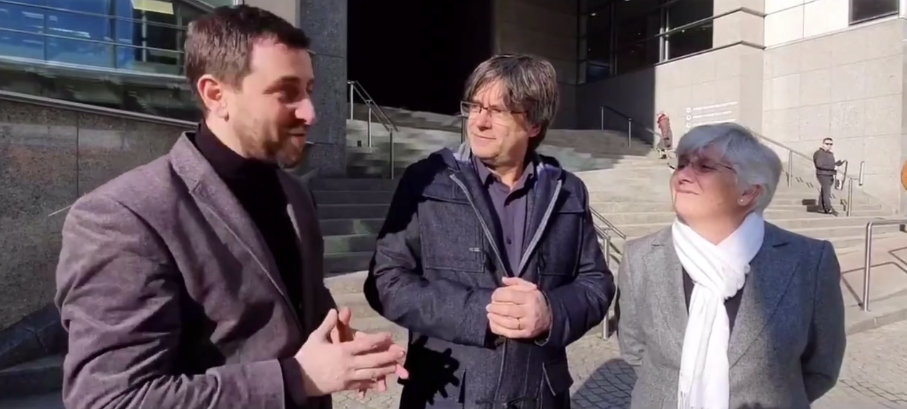04.01.2022 - 11:13
|
Actualització: 04.01.2022 - 12:13
The High Court of the European Union (CJEU) already knows which EU states want to comment on the pre-trial issues raised by Spanish judge Pablo Llarena related to MEPs Carles Puigdemont, Toni Comín and Clara Ponsatí. There are only three: Belgium, which has spoken out against the Spanish position, and Romania and Poland, which side with Llarena. These two countries have recently challenged the EU when they questioned the pre-eminence of European law.
This information, advanced by Spanish newspaper La Razón, has been confirmed by the defense of the exiles. In March last year, following Belgium’s refusal to hand over former minister Lluís Puig, Llarena presented a series of pre-trial questions to find out the scope of the extradition procedures that affected MEPs who had lost immunity and know about the judicial limits to continue pursuing them. All member states could comment on it, but once the deadline has expired, Spain has only received support from Romania and Poland.
Belgium’s position was predictable, given that it had already rejected the Spanish Supreme Court’s arrest warrant against Lluís Puig, arguing that this court was not the competent body to demand Puig’s extradition. The European Commission has also submitted a letter, but it is unknown at this time what it contains. With the allegations on the table, the court will now set a date for a hearing for the parties to present their arguments, and will rule afterwards.
Important precedent
The final outcome is still open, but there is a ruling that could become a very important precedent for the Spanish state to be forced to allow the free return of exiles: the Luxembourg Court says that a European citizen who has the right to free movement cannot be detained under the same accusations if he has already been trialled and sentenced before by another member state of the Union. And this was done by both Belgium (in the case of Lluís Puig) and Germany (in the case of Carles Puigdemont) in the part that affects the accusation of sedition.
Romania and Poland are not the best travel companions Spain could have. Both countries have challenged the EU in recent times, disobeying rulings from the ECJ. Last week, Romania’s Constitutional Court ruled that the country’s judges could not, for now, give precedence to European law over Romanian law. The ECJ ruling urged Romanian courts to disregard the country’s high court guidelines if they involved “systematic impunity” in cases of corruption or irregularities in the management of European funds.
A few days earlier, the European Commission had opened an infringement case against Poland for two rulings by the Polish Constitutional Court denying the preeminence of European law. Specifically, Brussels began the sanctioning process with a ruling in July declaring some precautionary measures of the Court of Justice of the European Union (CJEU) unconstitutional and another in October ruling that the Polish constitution was above the law. of the European Union.


